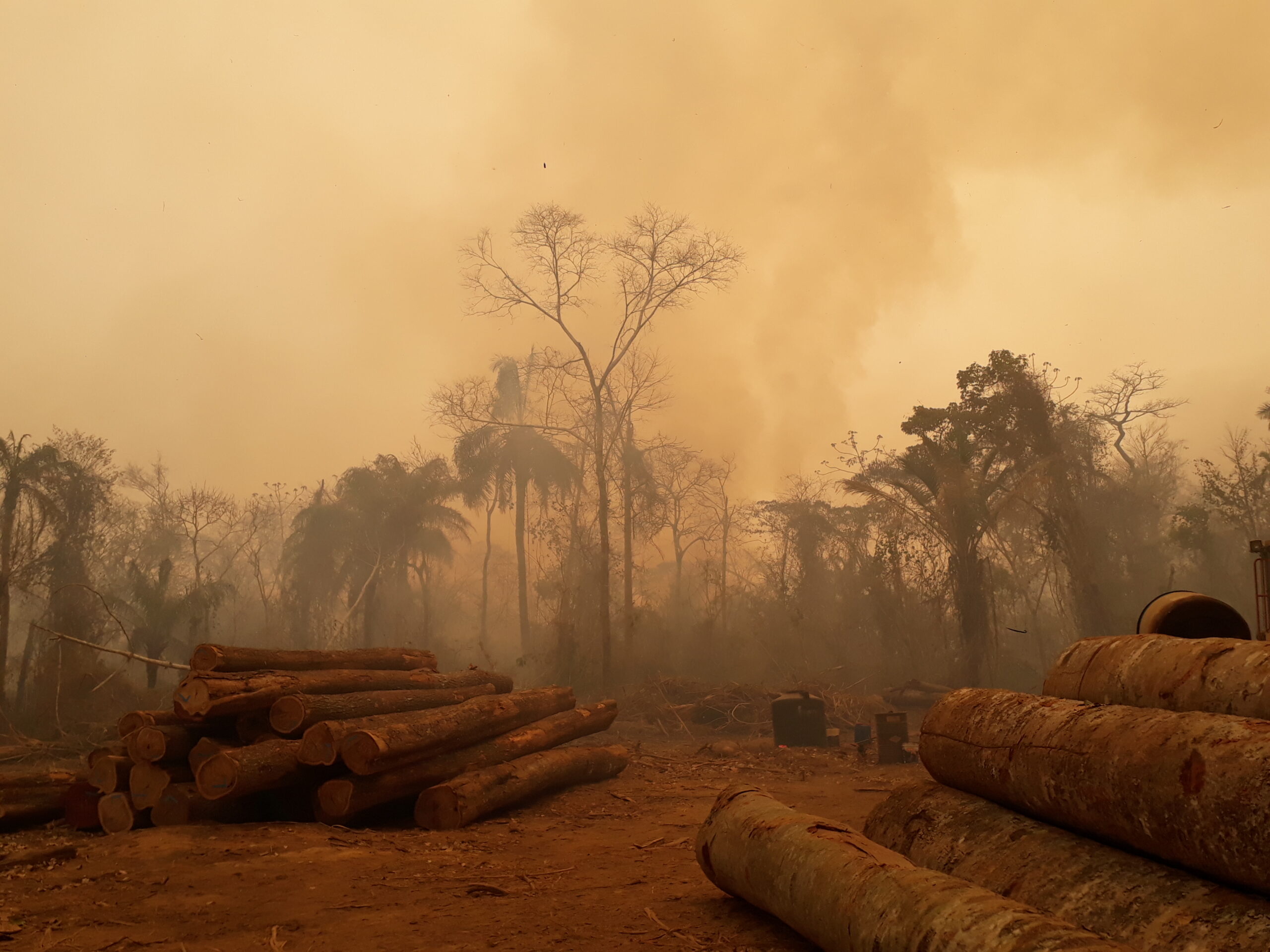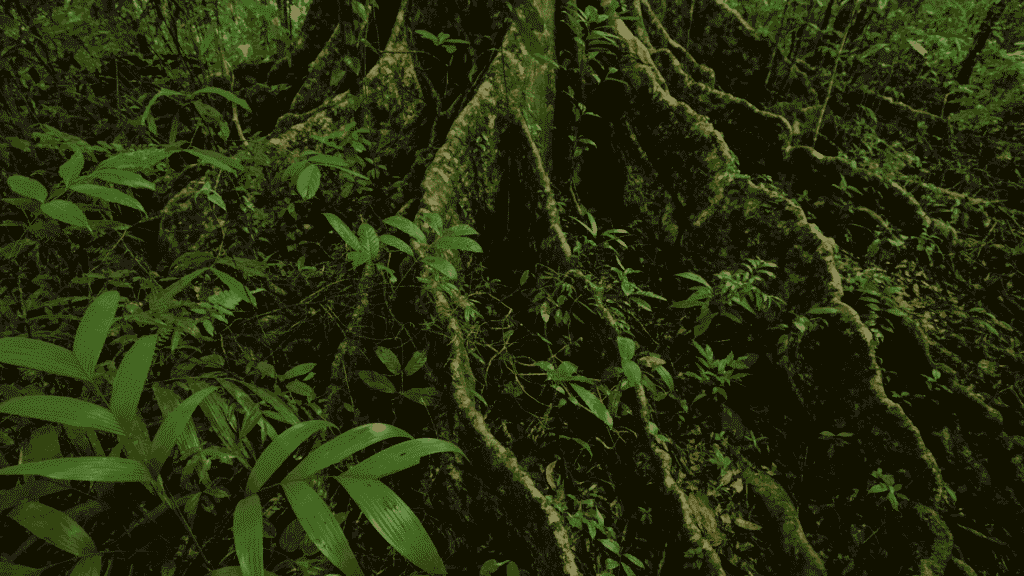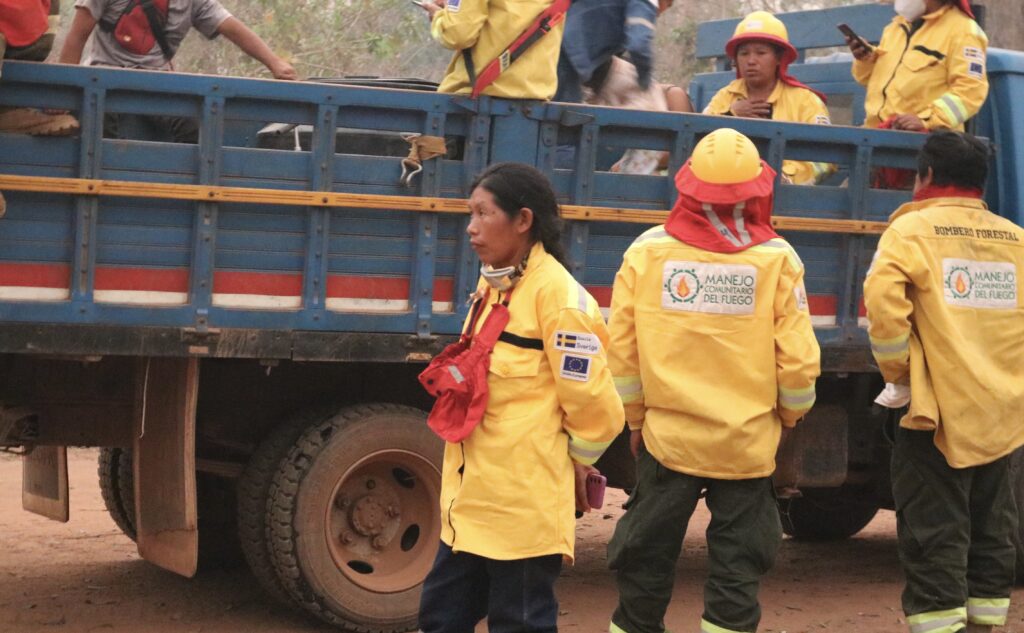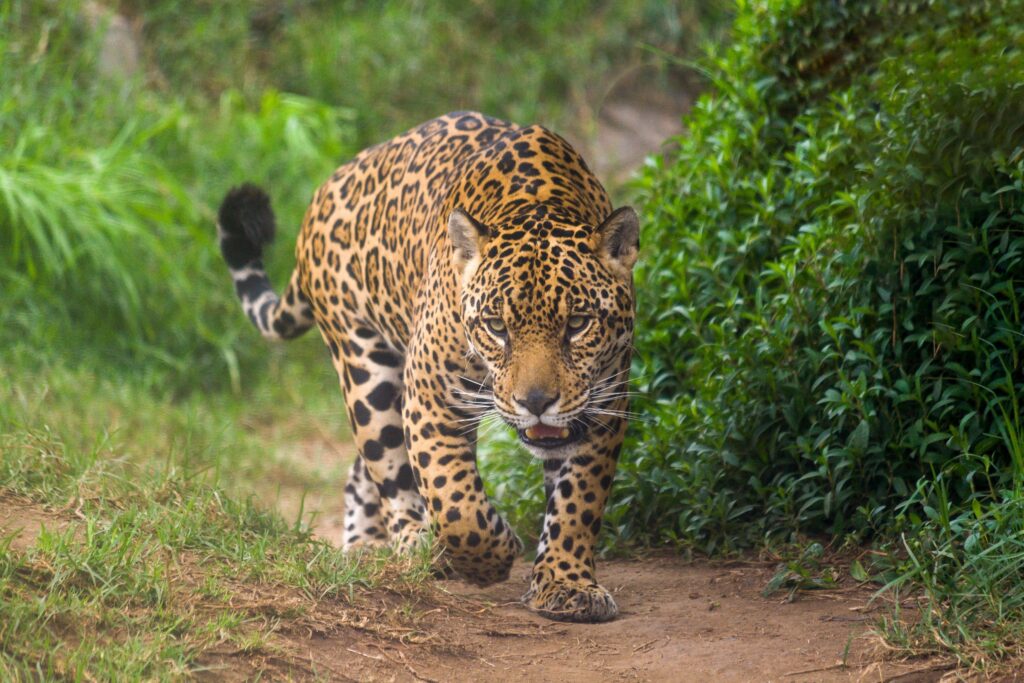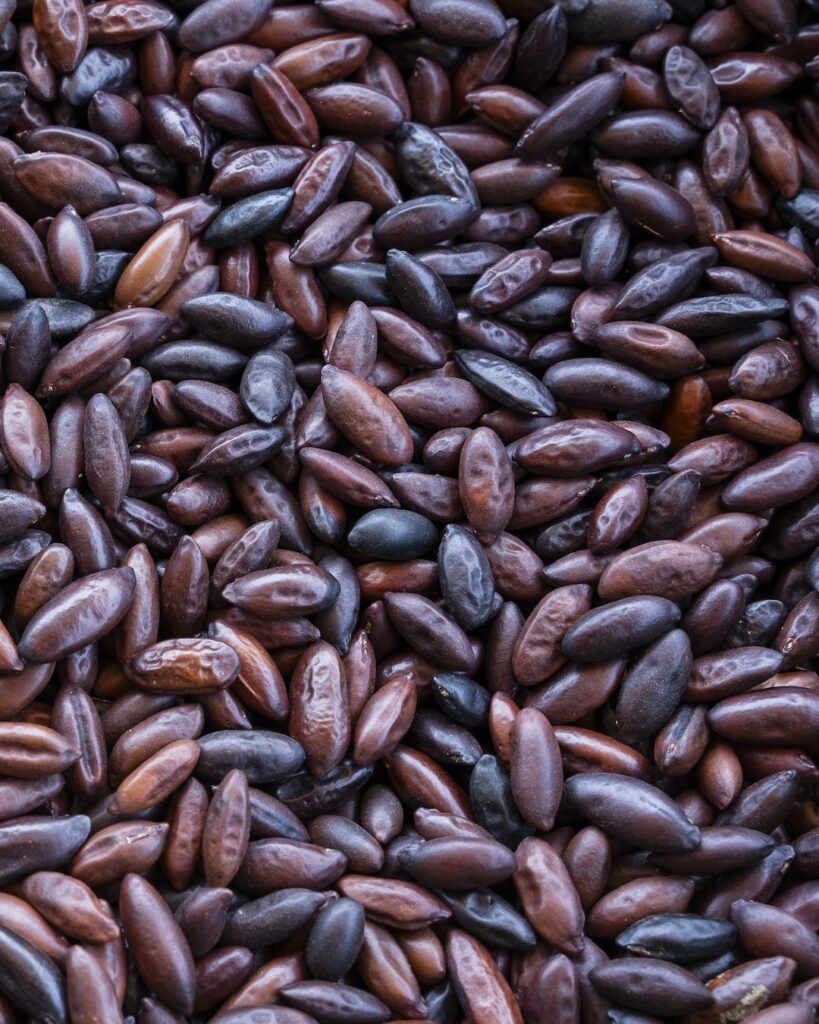Year after year, Bolivia’s Chiquitano Dry Forest faces increasingly destructive wildfires. Yet, 2019 is remembered as a particularly devastating year due to the extent of the land consumed by fire. Two Indigenous territories —Monte Verde and Lomerío— are among the most affected, having lost crops, livestock, and clean water sources. Vast clearings opened up where the forest was once dense and lush.
It was in this context that the communities of Nokoborema, Río Blanco, El Rancho, and 26 de Octubre began working to restore their forests and prevent future losses. Shortly after the fires, the Forests of the World team, together with local partner APCOB (Support for Peasant-Indigenous People of Eastern Bolivia), undertook technical studies in the affected area to identify the areas most vulnerable to wildfires based on the type of vegetation present, topographic conditions, and climate, and a participatory methodology was designed for the intervention.

The importance of community participation
Community participation can be the key to the success of a forest restoration project. If the people who depend on and live with the forest on a daily basis don’t take ownership of the program, as soon as the implementing organization leaves the area, the project disappears. It’s not just about informing or consulting about a decision already made from an office in the Global North; it’s about co-designing and co-managing a project hand in hand with its direct beneficiaries and the team with the technical and operational capacity.
The Chiquitano Dry Forest restoration project, which took place between 2019 and 2023, was influenced by the participation of the local population at every stage. Contrary to the classic view of development projects with a “top-down” approach, the participatory wave of the last decade recognizes that the people who experience a problem are those who best understand it and, ultimately, those who will be permanently responsible for solving it. Therefore, including them in planning is not only an ethical responsibility, but an operational necessity.
Forests of the World and APCOB provided technical support, as well as a nursery to produce the seedlings the community chose for reforestation in the areas affected by the fire. At the same time, they divided their communities’ territories according to the ideal land uses for each space: residential areas, productive lands, and conservation forests, with the community’s commitment to respect the agreed-upon land use plan. Spontaneous forest restoration, that is, the ability of the forest itself to regenerate without human intervention, was also integrated into the project.

The 2024 fire season
The project concluded in 2023 with positive results and a sense of satisfaction within the communities. However, the intense drought in 2024 intensified the fire season, affecting the areas being restored and once again putting the food and economic security of the Indigenous communities of Monte Verde and Lomerío at risk. This was a reminder that restoration projects cannot escape the broader context: climate change and global temperature rise. Local restoration projects require the commitment of the entire world, and especially of countries in the Global North, to reduce their greenhouse gas emissions to mitigate the effects of climate change and protect the planet’s forests. But this task also requires the active participation of citizens.
We are now in the most dangerous season for forest fires in Bolivia. Local volunteer firefighters are currently battling the flames; they are not lacking in courage, but they do lack equipment, training, and support. You can support them this season here.
